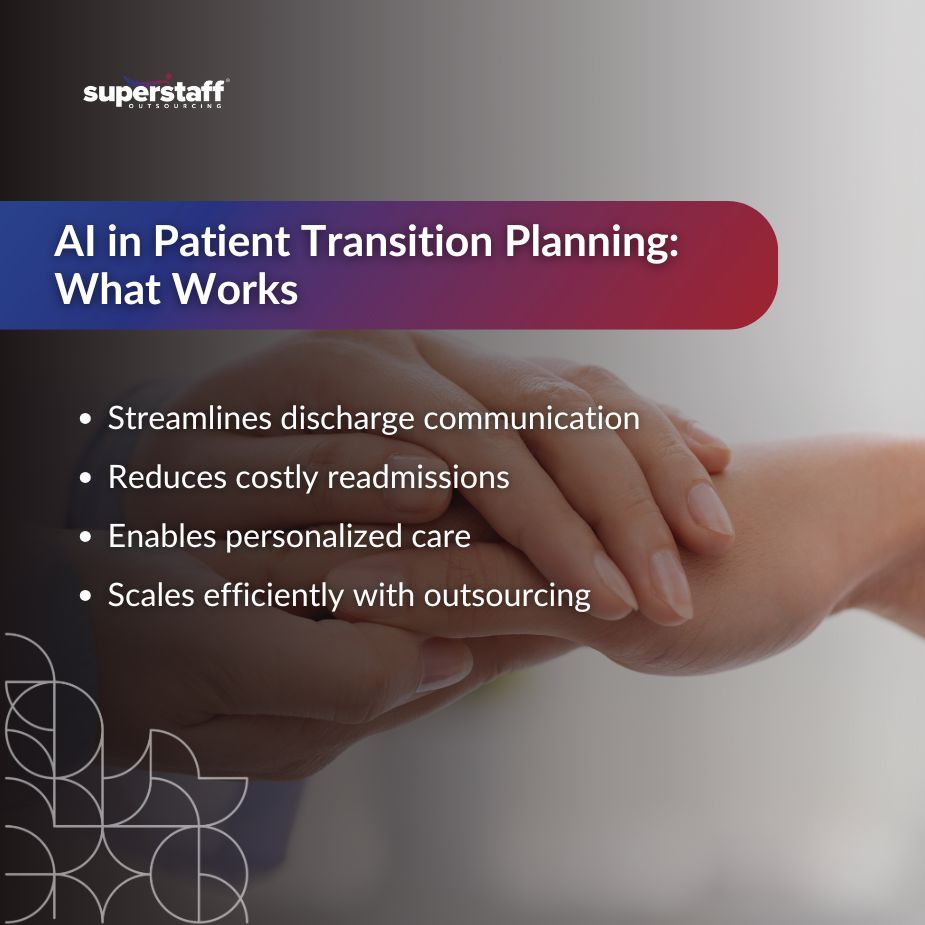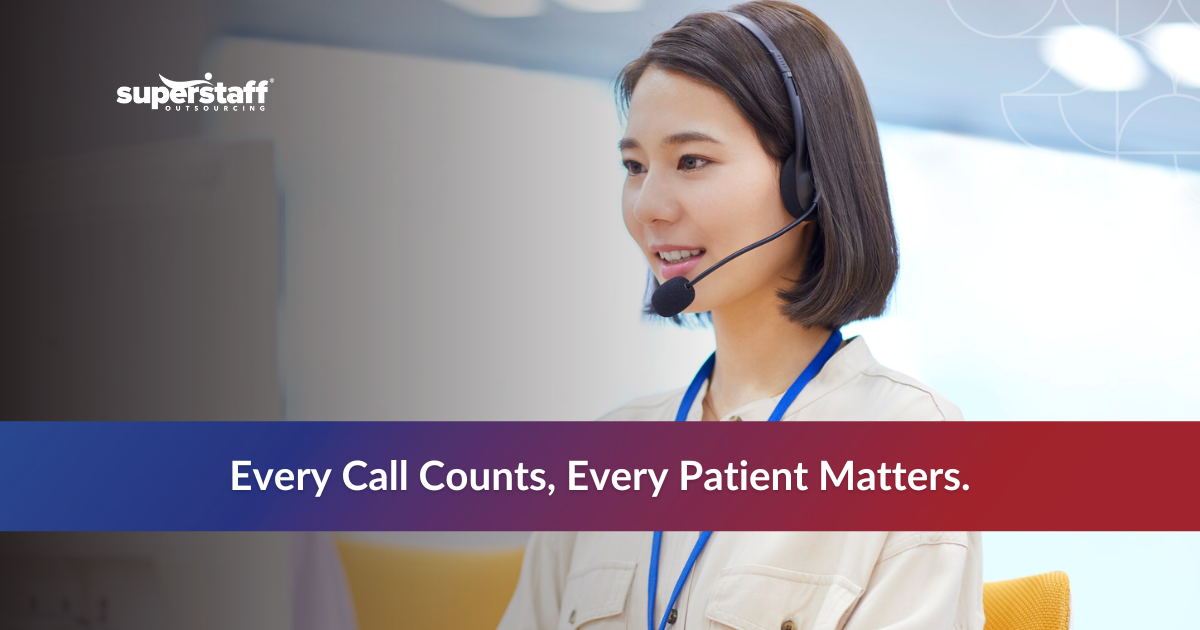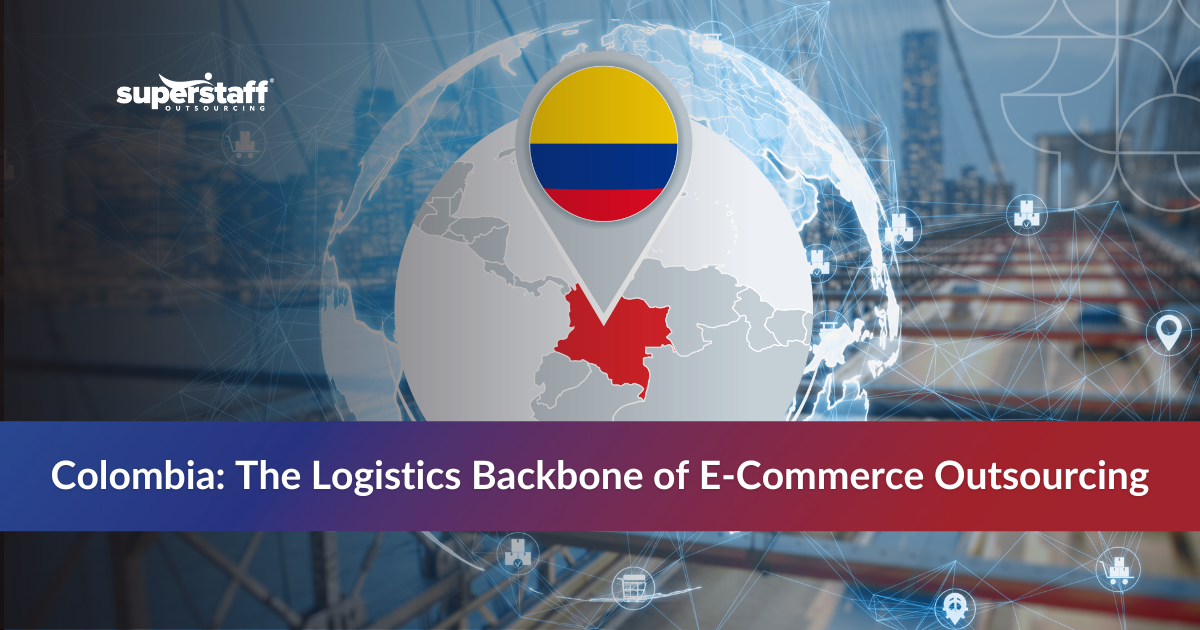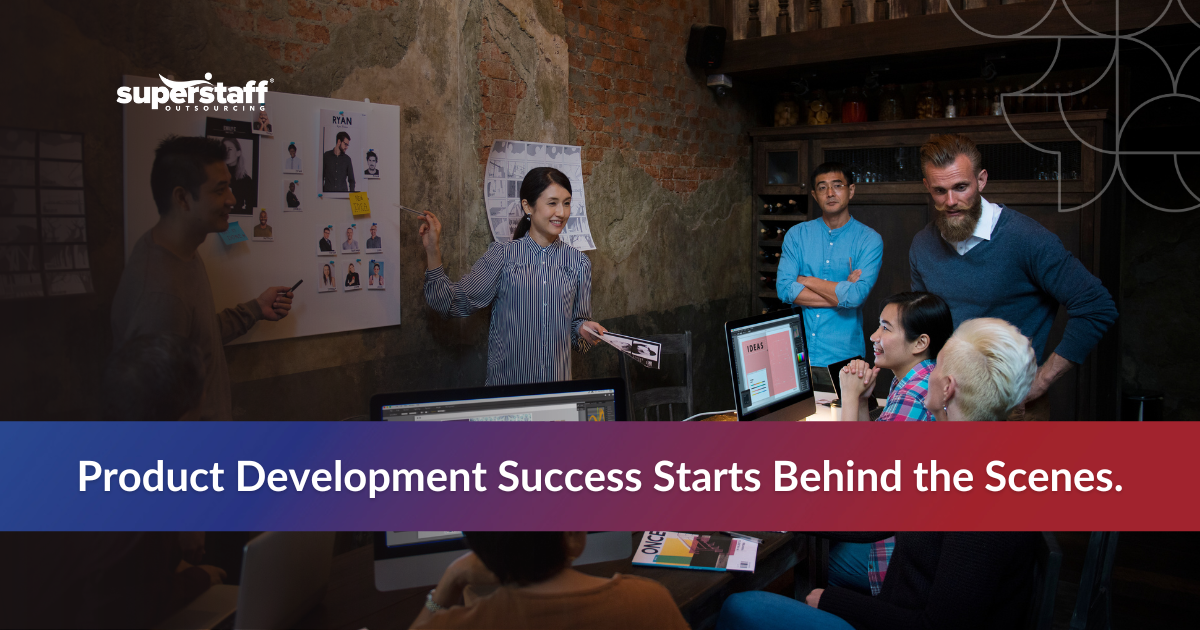
Discharge delays and care miscommunication are costing lives—and money. For hospitals, the discharge process often marks the point where patient safety can either be secured or compromised. In an effort to streamline this critical phase, more healthcare providers are turning to AI in patient transition planning. But while technology offers solutions, the actual implementation—daily coordination, communication, and follow-through—requires dedicated manpower. That’s where outsourcing steps in.
Outsourcing non-clinical discharge processes powered by AI helps hospitals scale smarter, optimize care transitions, and reduce patient risks. This blog explores how healthcare providers can enhance post-acute outcomes through AI-powered discharge coordination with the help of outsourcing partners.

Why Discharge Planning Is a Critical Vulnerability
Discharge planning is one of the most fragile points in the patient care journey. Even with the best clinical outcomes, a flawed discharge process can derail recovery. Poor communication between care teams, unclear instructions, and follow-up failures often result in unnecessary readmissions. A patient who doesn’t fully understand their post-discharge care plan—or who never receives a timely appointment—might wind up back in the emergency room.
When hospitals are understaffed or overloaded, discharge planning becomes rushed or fragmented. The transition from hospital to home or another care facility should be seamless, but too often, it’s where patients fall through the cracks. AI offers a path to improvement—but only if supported by robust operational execution.
How AI Is Rewriting Discharge Planning
AI-powered discharge intelligence systems are transforming how hospitals manage post-acute care. These platforms use algorithms and real-time data to identify patient risks, generate custom discharge plans, and coordinate the many moving parts of a safe transition. Hospitals use AI to predict who is at high risk for readmission, tailor communication to patient needs, and even recommend care pathways based on EHRs.
But no matter how advanced the technology, it needs skilled teams to interpret outputs, communicate with patients, and act on time-sensitive tasks. The success of AI in patient transition planning depends not just on software but on human follow-through. That’s where strategic outsourcing becomes an enabler of innovation.
Operationalizing AI With Outsourcing Support
Outsourcing enables hospitals to operationalize AI-driven discharge workflows without overburdening in-house staff. AI might signal what needs to be done, but it’s external support teams that make it happen. These professionals, trained in healthcare workflows, manage insurance verification for home health services, schedule follow-up appointments, and ensure patients receive discharge instructions on time.
Instead of diverting clinical staff to handle administrative discharge duties, hospitals can delegate non-clinical responsibilities to outsourcing partners. This division of labor allows AI tools to perform at their highest potential while preserving clinician bandwidth. It’s the fusion of healthcare workflow automation with people-powered execution that delivers measurable gains.
More Than Manpower: Outsourcing Adds Compliance and Clarity
Partnering with experienced BPO providers enhances compliance, communication, and continuity. Outsourcing firms that specialize in healthcare support often maintain HIPAA-certified systems and protocols. This ensures that sensitive patient data is handled with integrity and security, even across remote or offshore operations.
But the value of outsourcing goes beyond compliance. Discharge coordination requires consistent, proactive engagement with patients—something well-trained teams can deliver through timely education calls, multilingual communication, and empathetic follow-ups. The best outsourcing providers act as an extension of your internal team, reinforcing patient trust at a critical moment of care.
Accelerating AI Adoption Without the Headaches
Outsourcing helps health systems scale AI initiatives faster without compromising on quality. Hospitals no longer need to wait for long hiring cycles, retrain staff, or invest heavily in additional infrastructure to support new technology. Outsourcing partners can provide healthcare-specialized teams ready to go live with minimal ramp-up.
This agility is particularly valuable when integrating new tools like healthcare workflow automation or platforms offering medical record automation for discharge. Outsourcing ensures continuous performance monitoring and rapid iterations without adding pressure to already-stretched internal resources. Predictable costs and scalable staffing models make innovation more feasible and sustainable.
Why AI Still Needs Human Coordination
While AI shines in data processing and decision support, it can’t replace the human touch required for patient engagement. Automated alerts or discharge summaries mean little if not followed up with personalized care. When patients receive a live call explaining their medication plan—or a timely reminder about a follow-up appointment—their likelihood of adhering to that plan increases.
It’s in these interactions where outsourcing proves invaluable. Trained teams can interpret AI outputs and act on them quickly, offering a balance of technological efficiency and empathetic communication. They also support complex cases where post-discharge needs vary significantly, reinforcing continuity of care.
Building a Hybrid Model That Works
More hospitals are adopting hybrid care models that pair AI solutions with outsourcing support. This approach combines the strengths of automation and human coordination into a single, efficient discharge system. Whether it’s using AI to prioritize patients who need follow-up or relying on BPO teams to perform manual outreach, the result is a more consistent and connected patient journey.
The key to making this model work is choosing an outsourcing partner that understands not only technology but healthcare. With the right provider, even intricate needs like medical record automation for discharge become manageable. Hospital teams can trust that patient transitions are being handled with both speed and care.
AI in Patient Transition Planning: The Outsourcing Advantage
Outsourcing is the missing piece that allows hospitals to fully unlock the potential of AI-powered discharge intelligence. AI in patient transition planning is not just a tech trend—it’s a foundational shift in how care is delivered after a patient leaves the hospital. But to work well, it needs consistent execution, empathetic communication, and operational scale.
From enabling faster discharges to preventing costly readmissions, outsourcing supports every phase of the transition process. By bridging the gap between AI systems and patient realities, outsourcing makes digital discharge strategies both effective and human-centered.
SuperStaff’s healthcare support teams are built for this challenge. With deep expertise in healthcare workflow automation, compliance, and patient communication, we help hospitals scale AI solutions without straining internal teams. Explore how SuperStaff can help your facility improve discharge efficiency and patient outcomes—without overextending your internal resources.






